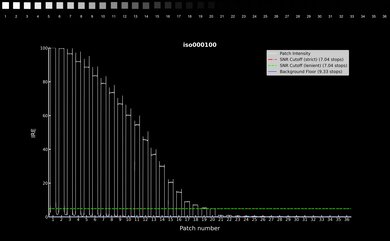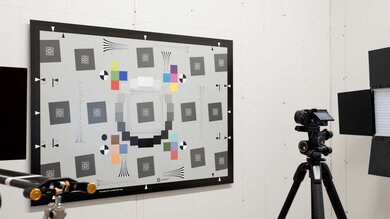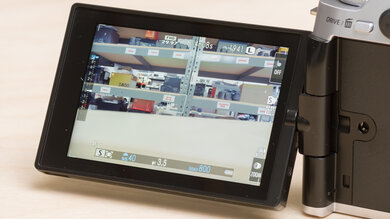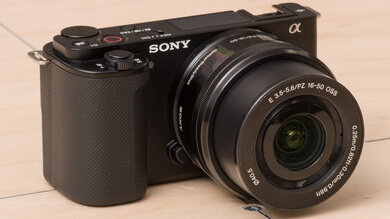
Mirrorless cameras are a great option for beginner photographers thanks to their electronic viewfinders, which let you see changes to your image in real-time through the viewfinder. With plenty of options at different price brackets and for users of different experience levels, making the jump to a dedicated camera has never been easier. Though it might be tempting to dive right into a more advanced model, the good news for those just starting is that any modern mirrorless camera will be more than capable of doing what you need. Our advice is to get whichever camera is within your budget or is easily available, whether new or used, so you can start practicing and get a handle on the fundamentals of what makes a good photo. If you don't mind getting a camera secondhand, there are plenty of reputable retailers on eBay and at stores like Adorama, B&H Photo Video, KEH, and MPB.
We've bought and tested over 110 cameras, and below, you'll find our best entry-level mirrorless cameras. If you're curious about DSLR alternatives, check out our list of the best DSLR cameras for beginners instead. And if you're on a tight budget, check out the best budget mirrorless cameras or the best cheap and budget cameras more broadly. Otherwise, you can have a look at our best mirrorless cameras under $1,000.
-
Best Mirrorless Camera For Beginners
Travel Photography7.9Landscape Photography7.8Sport & Wildlife Photography8.4Vlogging7.5Studio Video7.8Action Video4.9Performance Usages: Raw Photo7.5The Canon EOS R10 is one of the best entry-level mirrorless cameras we've tested. Though it isn't exactly cheap, it's a well-rounded choice for beginners who can afford it, with excellent ergonomics and a highly intuitive user interface. Its image quality is great thanks to its high-res APS-C sensor, and the camera is versatile enough for video work and vlogs. With 4k recording at up to 60 fps, you can record video in a wide range of styles. The R10 also has a great battery life and one of the most reliable autofocus systems among entry-level models.
That said, lens selection is still somewhat limited for Canon's RF mount, though you can adapt older EF and EF-S lenses if you buy an EF-EOS R adapter. If you'd prefer a more established mirrorless system, the Fujifilm X-S10 is another great choice, and it features in-body image stabilization (IBIS) to help you get smoother handheld shots. However, it's been discontinued, and it may be harder to find brand new. Its autofocus also isn't as reliable as the AF on the Canon.
-
Best Beginner Mirrorless Camera For Lens Selection
Travel Photography8.2Landscape Photography8.1Sport & Wildlife Photography7.5Vlogging7.4Studio Video7.5Action Video5.6Performance Usages: Raw Photo7.9If you're specifically after an entry-level camera with a wide selection of lenses to choose from, a Sony Alpha camera like the Sony α6400 is the way to go. Sony's E mount is well-established, with plenty of native and third-party lens options that you can upgrade to as your style and skills grow. The α6400 has begun to show its age a bit, especially compared to the newer, higher-end Sony α6700, which has improved ergonomics and video features. However, its sensor more than holds up, and its autofocus system remains one of the best in its class at this price point, even today.
For those who want to save even more money, the Sony α6100 uses the same sensor but has a lower-resolution EVF and a slightly cheaper build. On the flip side, the pricier Sony α6600 takes that same sensor and puts it in a sturdier body with a bigger battery and IBIS. Overall, the choice between these three cameras comes down to what you need out of a camera body, but they all capture beautiful images and high-quality 4k video, so each one can be a good choice, depending on your budget.
-
Best Compact Mirrorless Camera For Beginners
Travel Photography7.9Landscape Photography8.0Sport & Wildlife Photography7.4Vlogging8.6Studio Video8.7Action Video6.4Performance Usages: Raw Photo8.0The Fujifilm X-M5 is Fujifilm's latest entry-level camera and one of the most portable interchangeable lens options on the market. With a super compact and lightweight body, it's incredibly easy to take it on the go, whether you're traveling, shooting on the streets, or vlogging. Despite its small size, it has a well-thought-out design, with a few control dials and a dedicated film simulation dial to play around with the look of your images in camera. Image quality is also excellent, since it uses the same tried-and-true APS-C sensor as older models like the Fujifilm X-T4 and the Fujifilm X-S20, though its processor gives it Fuji's latest and greatest autofocus system.
Of course, that portability comes with some trade-offs. The camera doesn't have a viewfinder, for one, which may be a dealbreaker for some. It also lacks built-in stabilization, and its screen could be even brighter with a higher resolution. But given its amazing sensor and incredible video specs for the price, this is one of the best-value options for beginners who want something small and lightweight.
-
Best Budget Mirrorless Camera For Beginners
Travel Photography7.9Landscape Photography7.5Sport & Wildlife Photography8.0Vlogging7.9Studio Video7.7Action Video4.9Performance Usages: Raw Photo7.4Those on a tighter budget will love the Canon EOS R50, one of the best-value starter cameras on the market. It's portable enough to take on the go and features a high-resolution APS-C sensor that performs well for its class. It's also incredibly intuitive to use for those who've only ever used a smartphone camera, thanks to a robust auto mode that takes most of the guesswork out of photography. Plus, it's a solid vlogging camera, with 4k video recording at up to 30 fps and a fully articulated screen to help you monitor yourself while recording.
The Olympus OM-D E-M10 Mark IV is another great budget camera, especially if you need something even more portable. It's part of the Micro Four Thirds system, so compatible lenses are more compact, and there are more lenses to choose from. Plus, it's one of the very few cameras at this price point to feature IBIS. Its autofocus isn't nearly as reliable as the AF on the R50, and its ergonomics can feel more cramped.
-
Best Beginner Mirrorless Camera For Video
Travel Photography8.2Landscape Photography8.1Sport & Wildlife Photography7.3Vlogging8.7Studio Video8.2Action Video4.8Performance Usages: Raw Photo8.0If you want to get started in video, look no further than the Sony ZV-E10. This budget vlogging camera is the perfect video camera to get you started. It's similar to Sony Alpha cameras like the Sony α6400 mentioned above but is geared more toward vloggers and video shooters. To that end, it has an updated internal microphone, a detachable windscreen to reduce ambient noise, and a fully articulated screen that makes it easy to monitor yourself while recording.
Unfortunately, you don't get a viewfinder here, but the camera is super portable and feels relatively well-built. Its battery life is also impressive for a mirrorless model. Plus, its autofocus system is reliable and accurate, and it even has specialized focus modes for vloggers, like 'Product Showcase,' which automatically switches focus to any object held up in the frame for, say, product reviews or makeup tutorials. Do note that the Sony ZV-E10 II has hit the market and has better internal recording features than its predecessor, but the original ZV-E10 is hard to beat for the price, especially if you're just starting out and don't need more advanced features like 10-bit recording.
-
Best Cheap Mirrorless Camera For Beginners
Travel Photography7.7Landscape Photography7.6Sport & Wildlife Photography6.9Vlogging5.0Studio Video7.1Action Video3.5Performance Usages: Raw Photo7.3"Cheap" isn't really a word that comes to mind when we think of cameras, but there are options out there that won't cost you a fortune. Your best bet is to look for a camera on the used market, but if you don't want to risk it or if that isn't an option for you, the Canon EOS R100 is a good choice for beginners who want to keep costs down as much as possible.
It's as basic as they come, with no tilt screen, minimal controls, and limited video features. What it does have, though, is a high-resolution APS-C sensor that can capture great images. It's also chock-full of useful auto modes to help beginners get started. More importantly, if you've never used a camera before and this is the only one within your budget, it'll get you out there shooting, which ultimately transcends having the latest and greatest camera tech.
Notable Mentions
- Fujifilm X-T30 II:
The Fujifilm X-T30 II is a very portable entry-level model. It uses the same sensor as the Fujifilm X-M5, and unlike that camera, it has a viewfinder. However, its older processor means its autofocus isn't quite as reliable, and it has more limited video features.
See our review - Nikon Z 50:
The Nikon Z 50 is a great entry-level mirrorless camera with excellent ergonomics and build quality. It also has an intuitive user interface. However, its autofocus isn't as advanced as the Canon EOS R10's, and it uses a lower-resolution sensor.
See our review - Nikon Z fc:
The Nikon Z fc is very similar to the Nikon Z 50 we just mentioned, using the same sensor and internals. It's much more stylish than cameras like the Canon EOS R10 or the Sony α6400, with a vintage-inspired design. However, its autofocus system isn't the most reliable, and you'll have fewer lens options than the Sony.
See our review
Recent Updates
-
We added the Fujifilm X-M5 as the 'Best Compact Mirrorless Camera For Beginners' due to its portable size and well-rounded feature set.
-
We renamed the Sony α6400 as the 'Best Beginner Camera For Lens Selection' to better showcase its benefits over other models, and we added a comparison between the Sony ZV-E10 and the Sony ZV-E10 II to round out the former's market context.
-
Aug 06, 2024 : We added the Nikon Z fc to the Notable Mentions to round out the options available to beginner users.
-
May 10, 2024 : We added the Nikon Z 50 to the Notable Mentions because of its excellent build quality and ergonomics.
-
Mar 12, 2024 : We've added a note detailing some secondhand camera retailers in the introduction and brushed up the rest of the article for clarity.
All Reviews
Our recommendations above are what we think are currently the best mirrorless cameras for beginners to buy, according to their needs. We factor in the price, feedback from our visitors, and availability (no cameras that are difficult to find or almost out of stock in the U.S.).
If you'd like to choose for yourself, here's the list of all our tested mirrorless cameras that retail for under $1,000, arranged in descending order of price. Be careful not to get caught up in the details. There is no single perfect camera. Personal taste, preference, and shooting habits will matter more in your selection.
Comments
Best Mirrorless Cameras For Beginners: Main Discussion
What do you think of our picks? Let us know below.
Looking for a personalized buying recommendation from the RTINGS.com experts? Insiders have direct access to buying advice on our insider forum.
Update: We added the Fujifilm X-M5 as the ‘Best Compact Mirrorless Camera For Beginners’ due to its portable size and well-rounded feature set.
What do you think of these changes? Let us know






































































